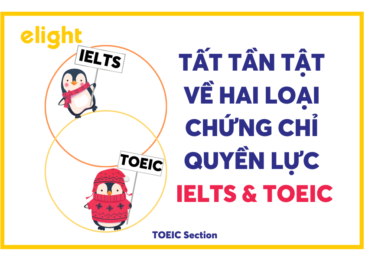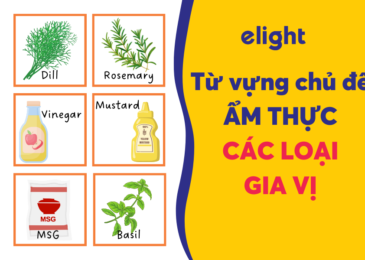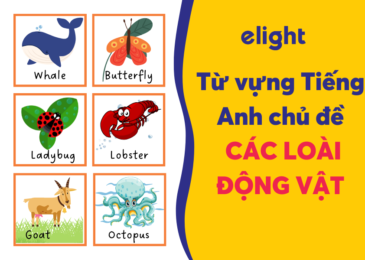Bài học Unit 4 The mass media sẽ giúp bạn hệ thống lại toàn bộ từ vựng và các cấu trúc câu liên quan đến chủ điểm bài học với mong muốn giúp các bạn học sinh lớp 12 dễ dàng tra cứu và ghi nhớ bài học một cách hiệu quả nhất. Cuối bài học là hệ thống bài tập do Liabia đã soạn kèm đáp án, bạn có thể tham khảo để tự luyện tập những kiến thức của unit này nhé!
#1/ Phần từ vựng
Từ vựng |
Loại từ |
Phiên âm |
Ý nghĩa |
| addicted | a | /əˈdɪktɪd/ | nghiện |
| advent | n | /ˈædvent/ | sự đến /tới sự kiện quan trọng |
| application | n | /ˌæplɪˈkeɪʃn/ | ứng dụng |
| attitude | n | /ˈætɪtjuːd/ | thái độ |
| connect | v | /kəˈnekt/ | kết nối |
| cyberbullying | n | /ˈsaɪbəbʊliɪŋ/ | bắt nạt qua mạng Internet |
| documentary | n | /ˌdɒkjuˈmentri/ | phim tài liệu |
| dominant | a | /ˈdɒmɪnənt/ | thống trị, có ưu thế hơn |
| drama | n | /ˈdrɑːmə/ | kịch, tuồng |
| efficient | a | /ɪˈfɪʃnt/ | có hiệu quả |
| emerge | v | /iˈmɜːdʒ/ | vượt trổi, nổi lên, nổi bật |
| fivefold | adj,adv | /ˈfaɪvfəʊld/ | gấp 5 lần |
| GPS ( Global Positioning System) | n | hệ thống định vị toàn cầu | |
| leaflet | n | /ˈliːflət/ | tờ rơi, tờ in rơi |
| mass | n | /mæs/ | số nhiều, số đông, đại chúng |
| media | n | /ˈmiːdiə/ | phương tiện |
| microblogging | n | /ˈmaɪkrəʊblɒɡɪŋ/ | việc (cá nhân) thường xuyên gửi các tin nhắn/ hình ảnh/ video lên mạng xã hội để cộng đồng mạng biết được các hoạt động của người đăng tin |
| pie chart | n | /ˈpaɪ tʃɑːt/ | biểu đồ tròn |
| social networking | n | /ˌsəʊʃl ˈnetwɜːkɪŋ/ | mạng xã hội |
| subscribe | n | /səbˈskraɪb/ | đăng ký, đặt mua dài hạn |
| tablet PC | n | /ˌtæblət ˌpiː ˈsiː/ | máy tính bảng |
| the mass media | n | truyền thông đại chúng | |
| website | v | /ˈwebsaɪt/ | vị trí web, điểm mạng, cổng thông tin điện tử |
#2/ Phần các cụm từ & cấu trúc bổ trợ
Rely on: dựa vào
Carry out: thực hiện, tiến hành
Carry on: tiếp tục
Think of: nghĩ về
Listen to: nghe
Tie in: gắn với
Access to: kết nối tới
Be addicted to: nghiện
Specialise in: chuyên về
Be coined with: được tạo ra cùng với
Adapt to: thích nghi với
#3/ Phần bài tập
Exercise 1: Mark the letter A, B, C or D to indicate the word whose underlined part differs from the other three in pronunciation in each of the following questions. (chọn từ có phần gạch chân được phát âm khác so với các từ còn lại)
A.chatted B. surprised C. downloaded D. started
- A. accessed B. increased C. searched D. addicted
- A. watched B. connected C. addicted D. printed
- A. subscribed B. used C. challenged D. liked
- A. wasted B. excited C. relied D. invented
Exercise 2. Mark the letter A, B, C or D to indicate the word that differs from the other three in the position of the primary stress in each of the following questions. (Chọn từ có trọng âm khác so với những từ còn lại)
1.A. prevent B. event C. advent D. emerge
- A. documentary B. proficiency C. efficiency D. society
- A. assimilate B. diversity C. identity D. customary
- A. nationality B. globalization C. flexibility D. solidarity
- A. achievement B. encourage C. intergrade D. tradition
Exercise 3. Mark the letter A, B, C or D to indicate the word(s) CLOSEST in meaning to the underlined word(s) in each of the following questions. (Chọn từ có nghĩa gần nhất với từ được gạch chân)
- Each form of mass media has an important impact on society.
- influence B. pressure C. affection D. role
- Journalists can make mistakes, so don’t believe everything you read in the press.
- publications B. news bulletins
- reference books D. newspapers and magazines
- She thinks that unfortunately they may not understand the benefits of online information.
- advantages B. points C. features D. amounts
Exercise 4. Mark the letter A, B, C or D to indicate the word(s) OPPOSITE in meaning to the underlined word(s) in each of the following questions. (Chọn từ có nghĩa trái với từ được gạch chân)
- Using social networks helps you keep in touch with friends and family any time.
- put up with B. keep track of C. lose touch with D. catch up with
- Teenagers can become addicted to social networking if they can’t control they spend online.
- dependent on B. hooked on C. indifferent to D. exhausted by
- New electronic devices have been developed to cater to users’ ever-changing needs.
- changeable B. unstable C. constant D. predictable
Exercise 5. Read the following passage and mark the letter A, B, C or D to indicate the correct word or phrase that best fits each of the numbered blanks. (Đọc đoạn văn sau và chọn từ hoặc cụm từ phù hợp nhất với chỗ trống).
A Powerful influence
There is no doubt at all that the Internet has made a huge difference to our lives. However, most parents worry that their children spend too much time browsing the Internet or playing computer games, hardly (1)…….. doing anything else in their spare time. Naturally, parents are (2)……. To find out why the Internet is so attractive, and they want to know if it can be harmful for their children. Should parents worry if their children are spending that much time (3)………… their computers.
Obviously, if children are bent over their computers for hours, (4)….. in some game , instead of doing their homework, then something is wrong. Parents and children could decide how much use the child should ( 5)………. of the Internet, and the child should give his or her (6)…….. that it don’t interfere with homework. If the child is not (7)……… to this arrangement, parents can take more drastic steps. Dealing with a child’s use of the Internet is not much different from negotiating any other sort of bargain about behavior.
Any parents who is seriously alarmed about a child’s behaviour should make an appointment to discuss the matter with a teacher. Spending time in front of a computer screen does not (8)…… affect a child’s performance at school. Even if a child is (9)……. crazy about using the Internet, he or she is probably just (10)……… through a phase, and in a few months there will have something else to worry about!
- A. always B. rarely C. never D. ever
- A. worried B. concerned C. curious D. helpful
- A. staring at B. glancing at C. looking D. watching
- A. supposed B. occupied C. interested D. absorbed
- A. do B. have C. make D. create
- A. word B. promise C. vow D. claim
- A. holding B. sticking C. following D. accepting
- possibly B. necessarily C. probably D. consequently
- A. absolutely B. more C. quite D. a lot
- A. going B. passing C. travelling D. walking
#2.1/ Phần đáp án
Exercise 1:
| 1. B | 2. D | 3. A | 4. D | 5. C |
Exercise 2:
| 1. C | 2. A | 3. D | 4. B | 5. C |
Exercise 3:
| 1. A | 2. D | 3. A |
Exercise 4:
| 1. C | 2. C | 3. C |
Exercise 5:
| 1. D | 2. C | 3. A | 4. D | 5. C |
| 6. A | 7. A | 8. B | 9. A | 10. A |









